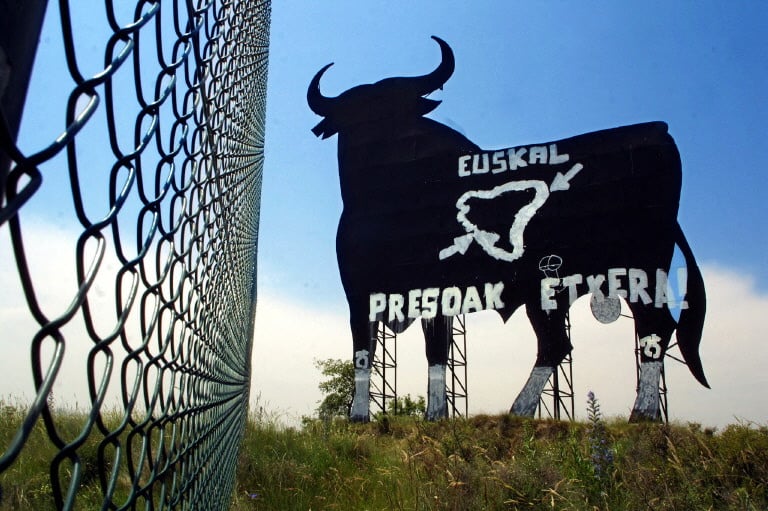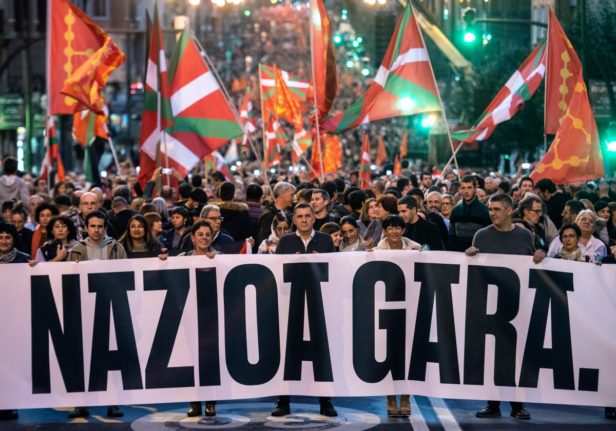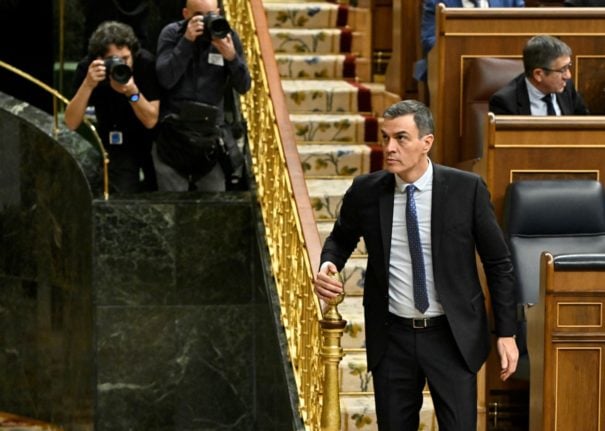After separatist party EH Bildu came joint first in the regional elections with the PNV (27 seats each) in the northern territory on Sunday, many foreign observers might wonder if the result means that separatism is back on the cards in the Basque Country.
Since its creation in 2011, EH Bildu has consistently caused controversy in Spanish politics. Most recently this has been on the national stage, with outrage about the Basque party’s role in propping up Socialist (PSOE) Prime Minister Pedro Sánchez’s government.
EH Bildu is viewed by many as essentially the political wing of or heirs to ETA, the defunct separatist terror group that killed at least 850 people in shootings and bombing across Spain over a four decade campaign. Bildu’s current party leader, Arnaldo Otegi, is a convicted ETA member but also credited with helping the group transition from armed struggle into politics.
Bildu’s role in politics at both the local and national level has offended many, and become a political weapon in broader left-right culture war rhetoric in Spanish politics.
In the build-up to Sunday’s poll, EH Bildu candidate Pello Otxandiano caused outrage when he refused to describe ETA as a terror group. In the local elections of May 2023, Bildu also caused controversy by running 44 convicted ETA terrorists, including seven imprisoned for murder, as candidates.
READ ALSO: Shock as 44 convicted ETA terrorists to run in elections in Spain’s Basque Country
So following the party’s success on Sunday, which was largely predicted by polls, does the fact a separatist party has won in the region mean that the Basque Country still wants independence from Spain?
Left-wing alternative
The answer is that some in the Basque Country still do, but certainly in fewer numbers than they used to. In fact, if anything the rise of EH Bildu as a political force says less about Basque independence than it does the politics within the region. For many, Bildu in 2024 is less about separatism and more a left-wing alternative to the Socialists, even though for the Basque Socialist Party, “they pretend to be left-wing but what they really want is independence”.
“Before, the only party looking after Basque interests was the PNV (Basque Nationalist Party), so everyone voted for them regardless of their political leanings,” Bilbao native Elena García told AFP recently.
“But with Bildu gaining strength, if you’re left-wing and more socially minded, you’ll vote for them,” she added.
It’s done this by garnering support among younger voters in part, due to its stance on social issues and political offering more broadly, rather than a commitment to independence. This is especially striking when contrasted with the centrist PNV that has almost governed the region uninterruptedly for 44 years.
READ ALSO: Why separatist Bildu spells hope for Basque youth as Spanish region votes
Pablo Simón, a political scientist at Madrid’s Carlos III University, told AFP that “Bildu has become increasingly popular with young people, benefitting from the end of the armed struggle.”
“That has allowed it to position itself as the pro-independence, left-wing alternative to the traditional PNV government with a substantial part of its agenda linked to social policies, wealth redistribution, environmentalism and the like,” he added.
Doctor in Sociology from the University of the Basque Country Imanol Zubero believes that the average PNV voter now is “more regionalist than “sovereigntist”, telling news site El Independiente that such voters “wants their own people to govern but without independence adventures”.

Does the Basque Country still want independence from Spain?
Bildu has been able to pivot away from separatist struggle, broadening its appeal to non-independence driven social issues and catering to a younger cohort of voters that place less emphasis (or even don’t remember) its bloody history. In this sense, there are parallels with Sinn Féin’s popularity growth in post-Troubles Ireland.
Polling data on the Basque independence question specifically is unclear, but what does seem certain is that Basque separatism is nowhere near as popular as it once was, whether with Bildu, PNV, or Socialist voters.
A recent survey found that support for Basque separatism overall has fallen by 30 percent over the last decade among voters of the region’s two most nationalist parties, the PNV and EH Bildu.
In 2014 the vast majority (86 percent) of Bildu voters supported independence, a figure that a decade later has plummeted to now only slightly more than half (55 percent) of those polled. Similarly, among PNV voters the decline in support is very similar. From 47 percent of its voters who said they backed Basque independence ten years ago, the figure is now just 17 percent. Enthusiasms for independence is decreasing across the political spectrum.
Among the Basque people more widely, hard-line separatist opinions have also dwindled. Different polls tell us different things. A widely reported poll in the Spanish media at the end of 2023 found that only 13 percent of Basques want outright independence. However, the latest Sociometer poll by the Basque government produced a very different figure: 23 percent.
The discrepancy has a lot to do with polling methodology and how the questions are asked. Generally, there are three options: pro, anti, and ‘it depends’ on the conditions or terms.
The logical conclusion would be that if 23 percent are in favour of independence, 77 percent must be against it. But it’s not so simple; often if you remove the conditional answers (ie. those saying “it depends”) and only include those against or in favour, the proportion of pro-independence voters is higher than polling suggests but still below historical highs.
So, what can we take from all this? That the independence impulse in the Basque Country is certainly lower than it was 10 or 20 years ago. That seems undeniable. However, following Bildu’s results on Sunday, it seems clear that for many Basque voters separatism is not the defining electoral issue it once was in the region.
Many voted for Bildu due to their stances on social issues and political positioning as a left-wing alternative, rather than an outright commitment to independence.
“(The Basque independence movement) has been losing muscle tone for a long time,” Zubero concludes.
“If a resurgence occurs it will be more due to the vindication of rights. There is even talk that future nationalism will be more fiscal, more about managing one’s own affairs than anything else.”
READ ALSO:



 Please whitelist us to continue reading.
Please whitelist us to continue reading.
Member comments